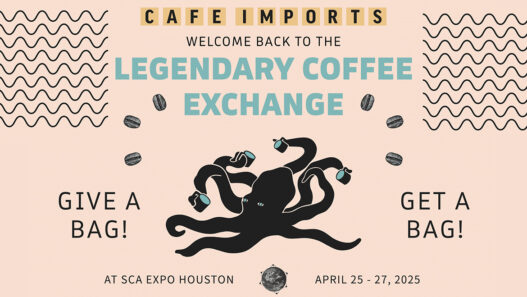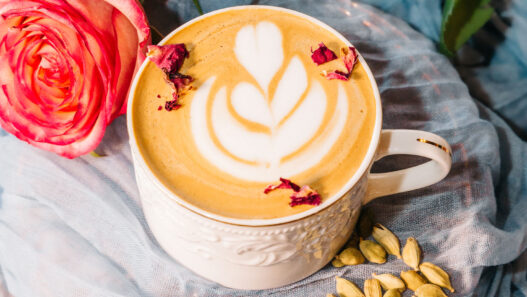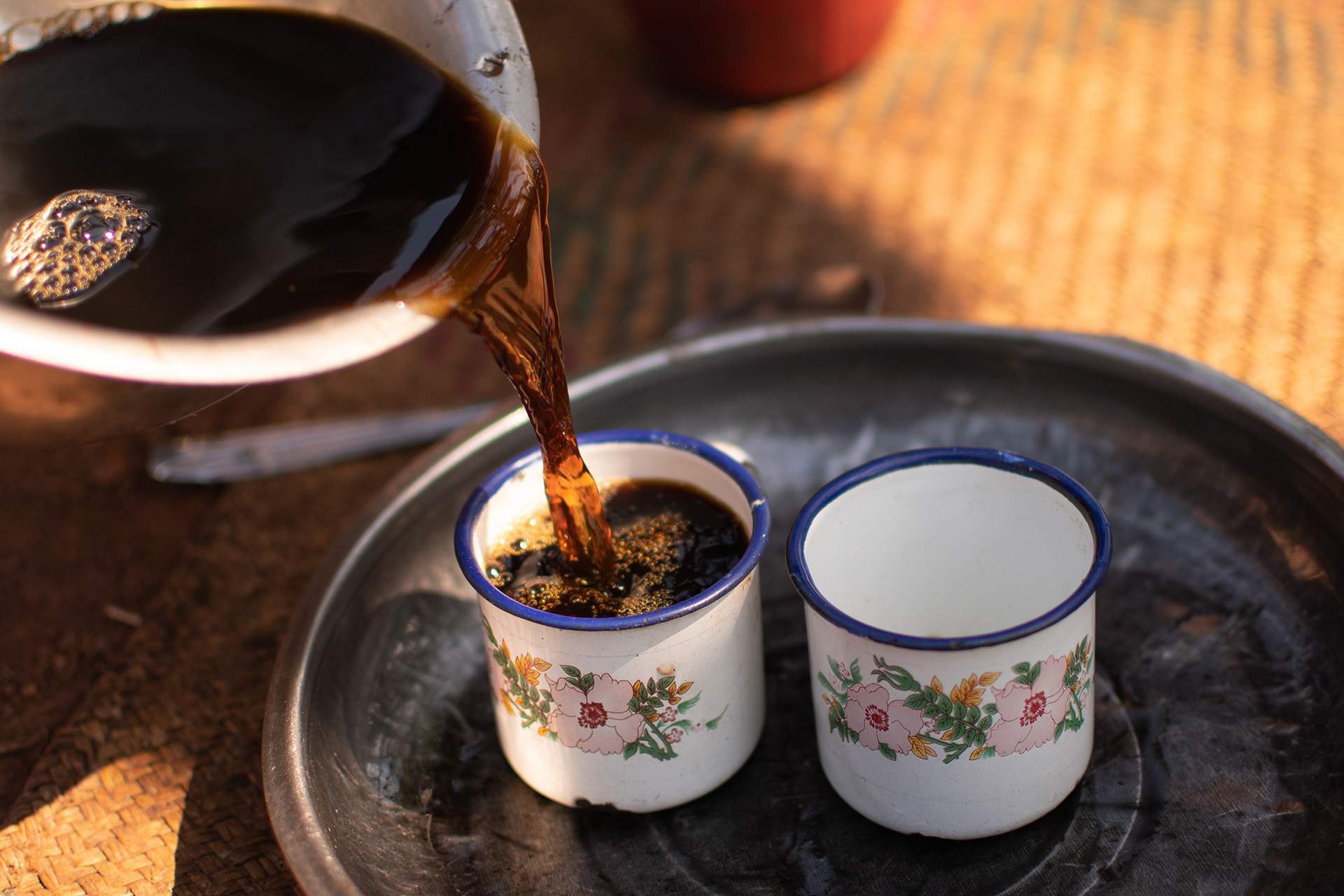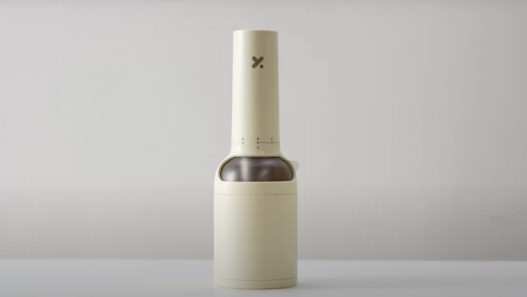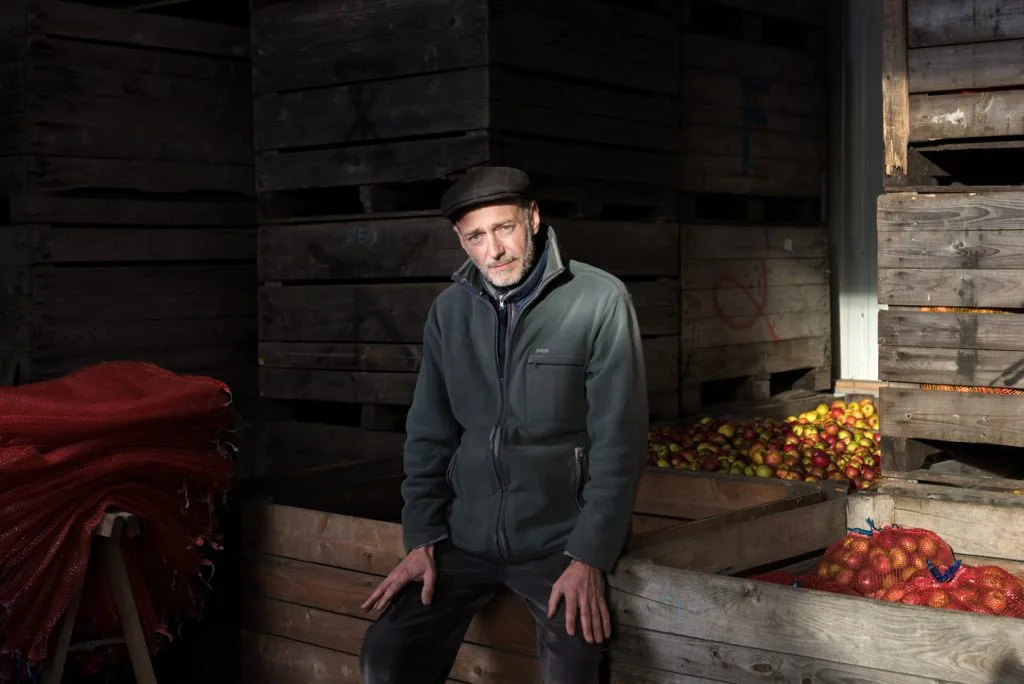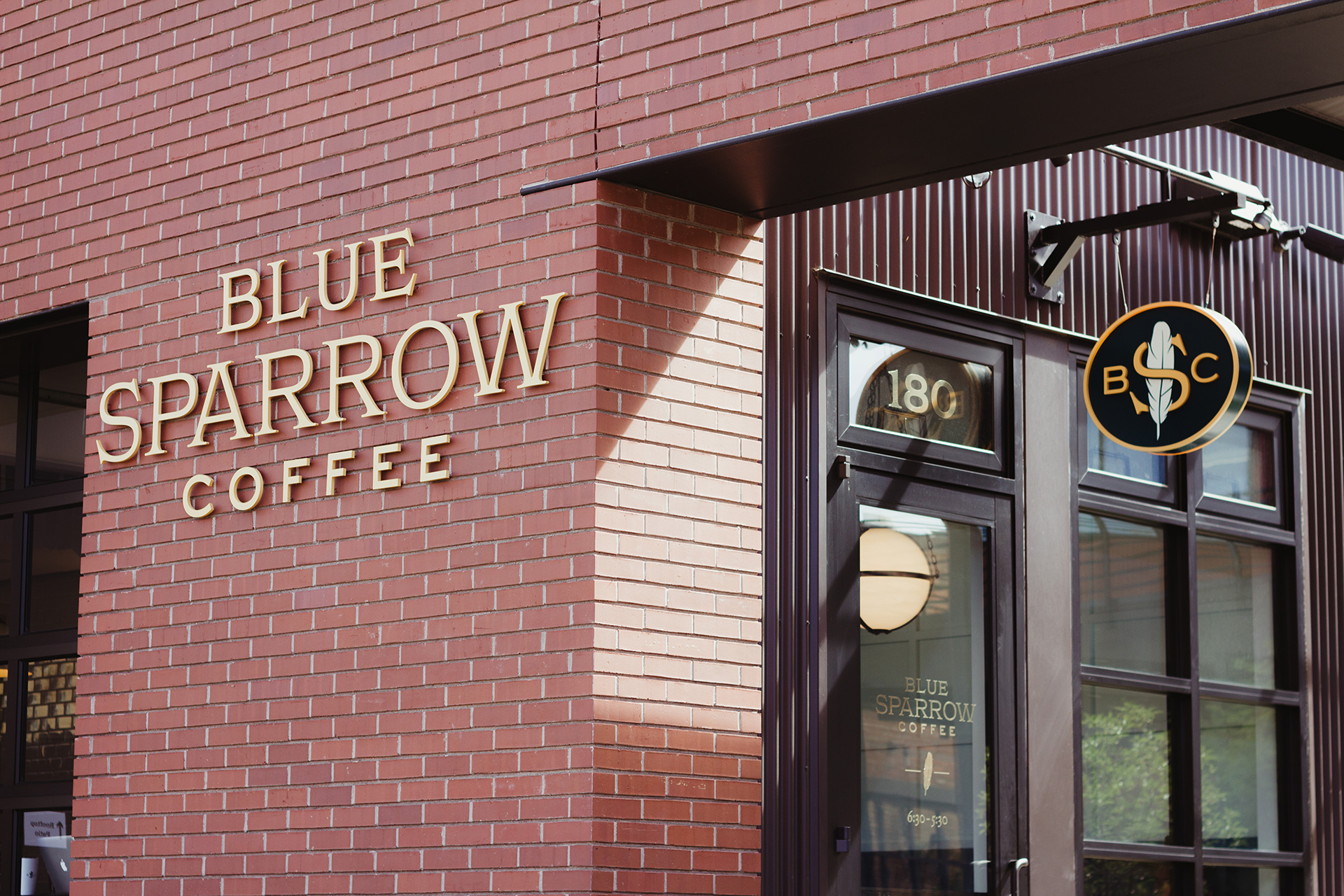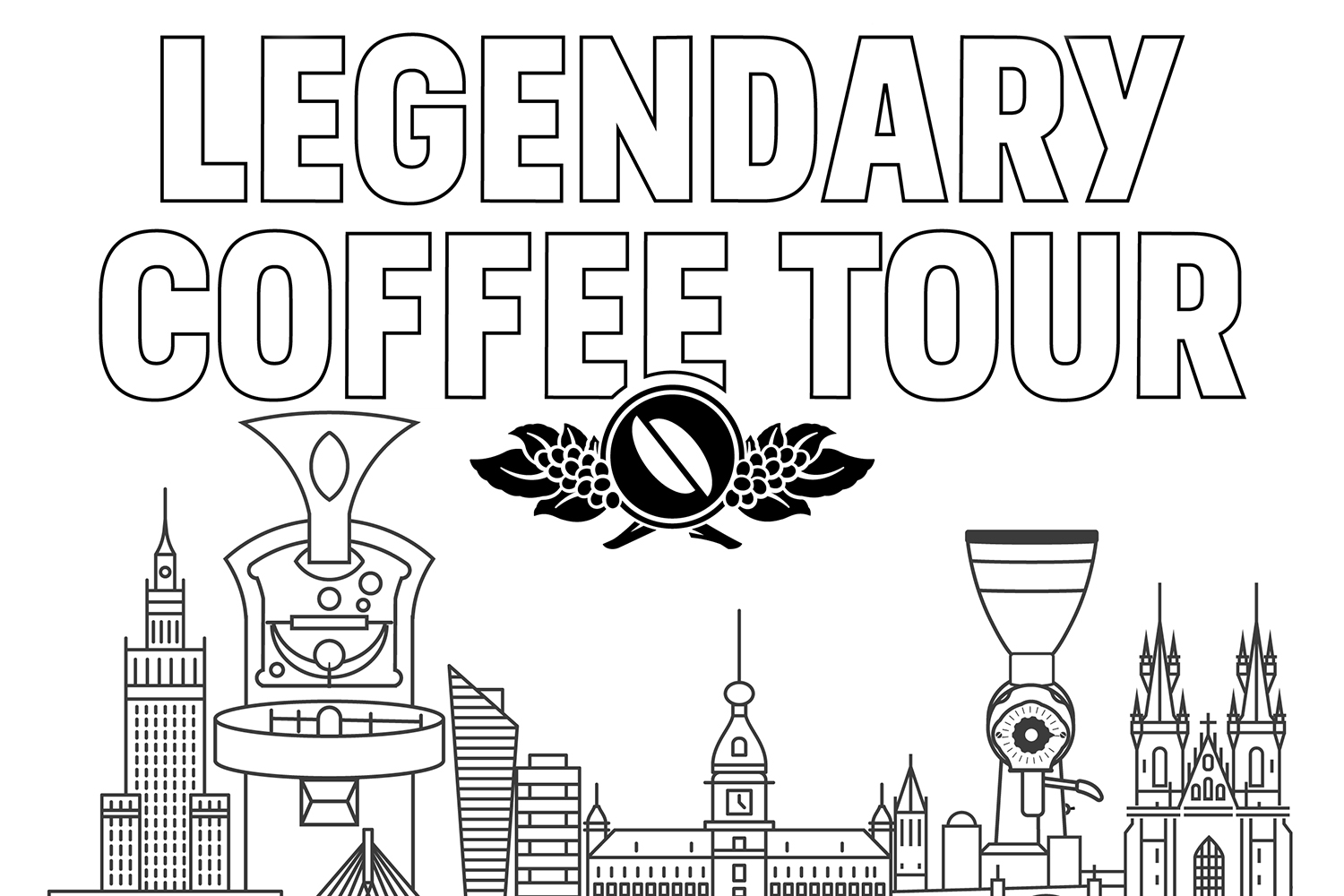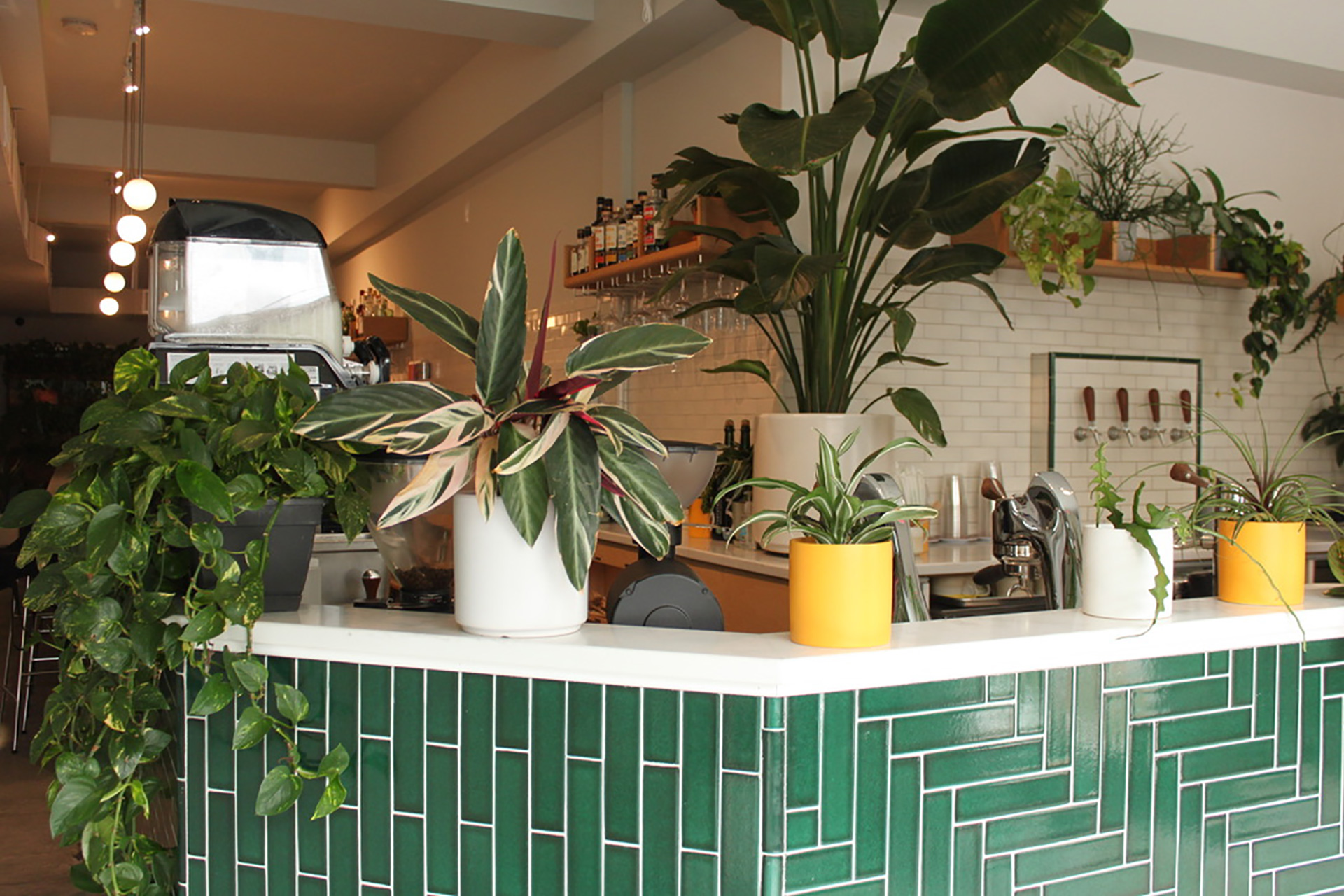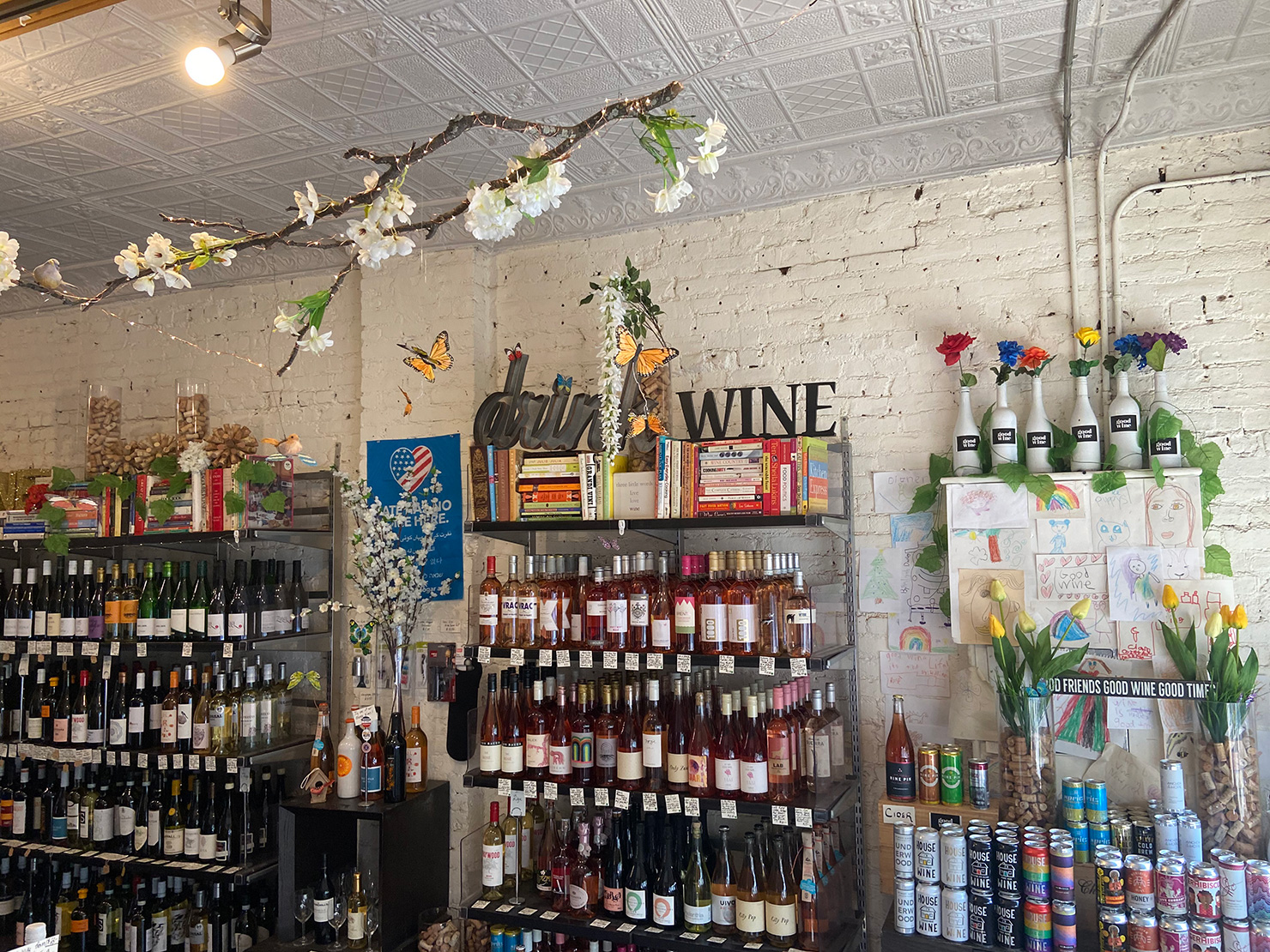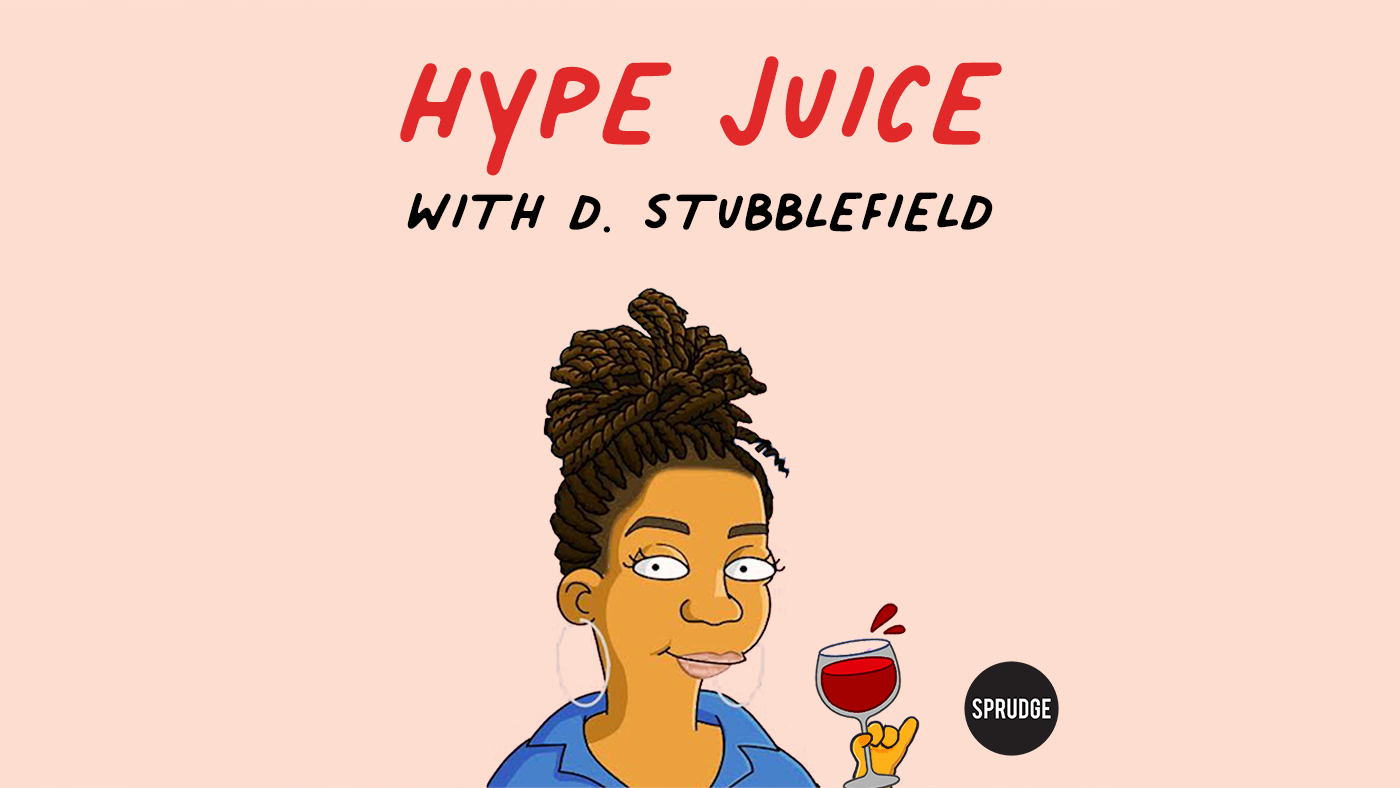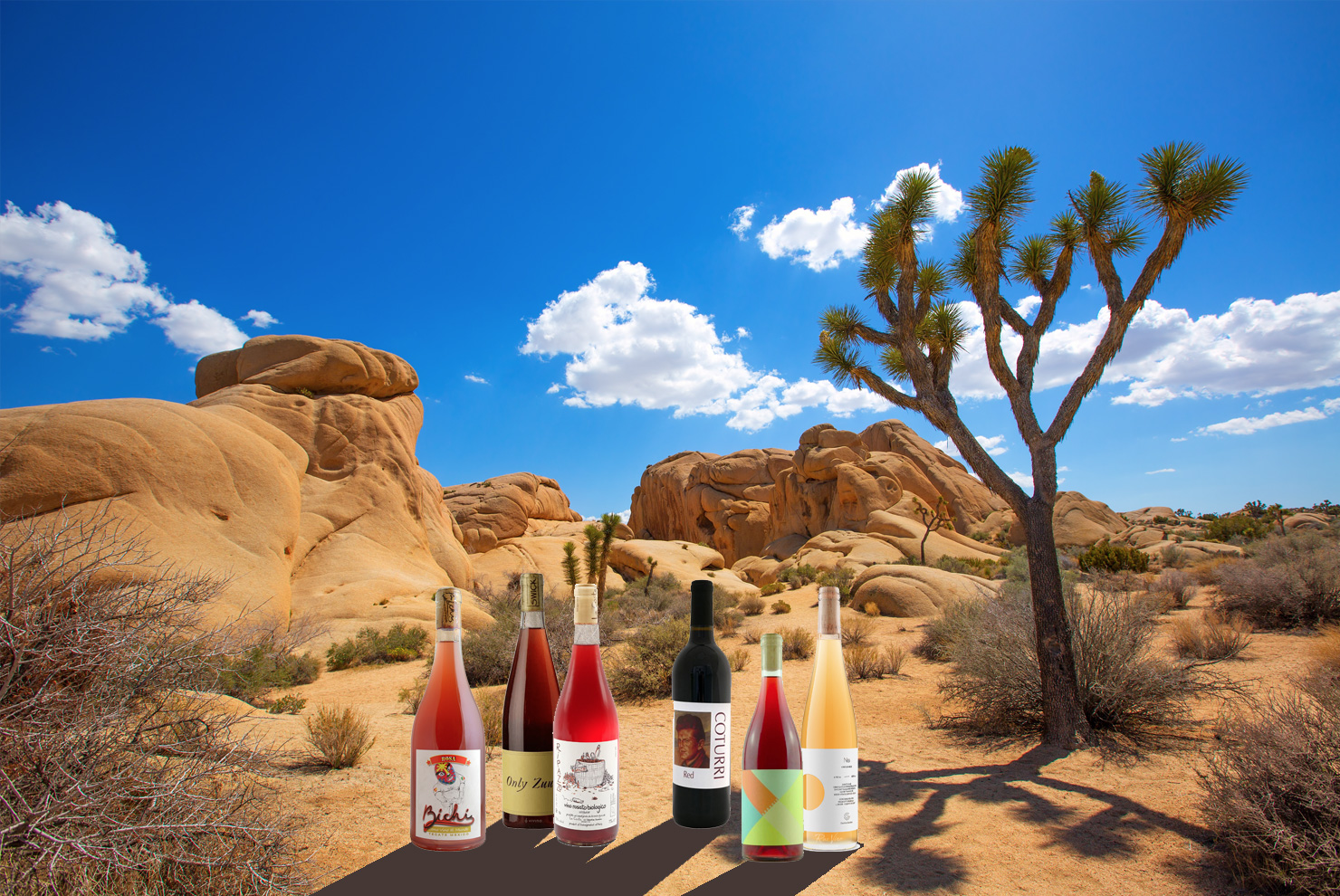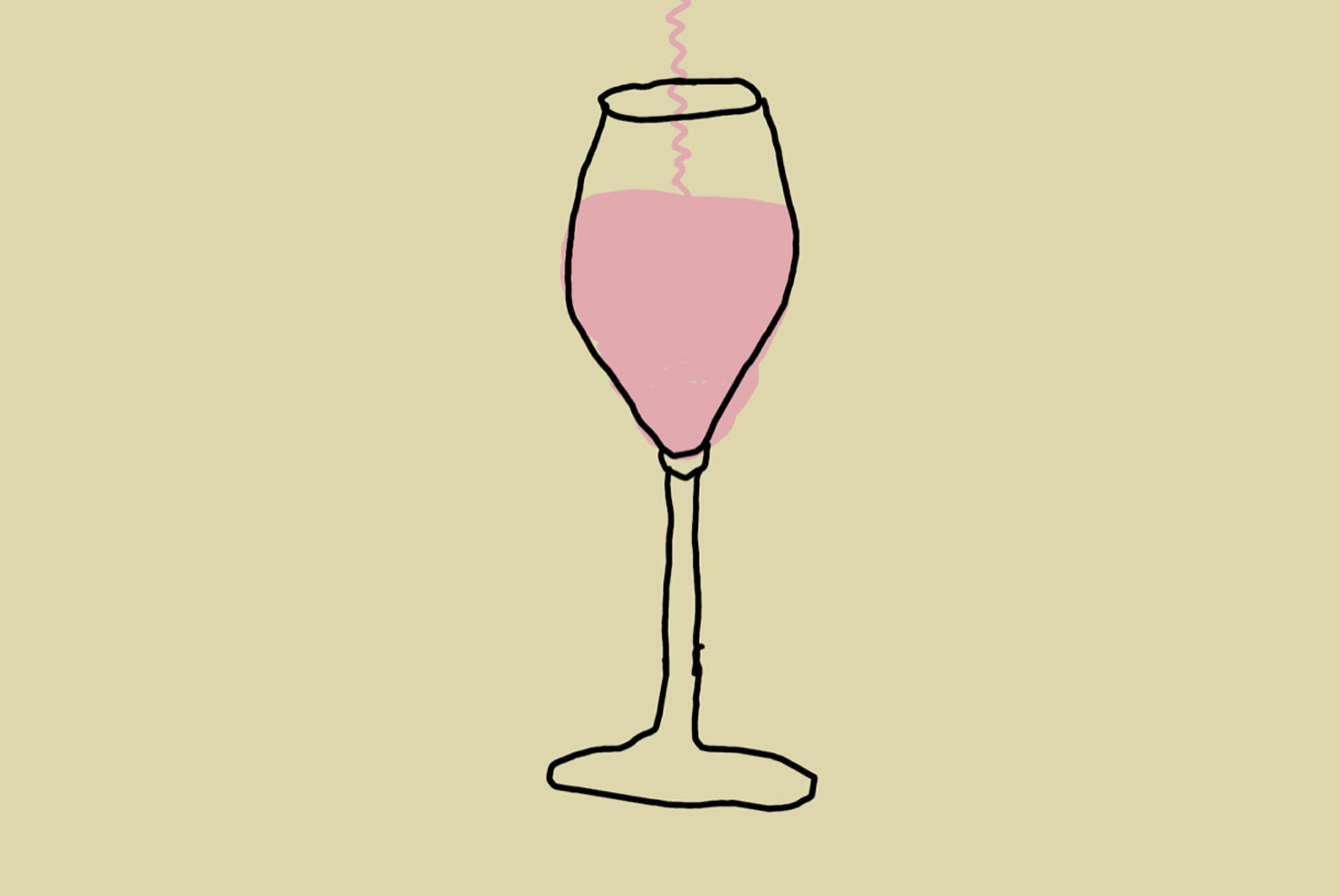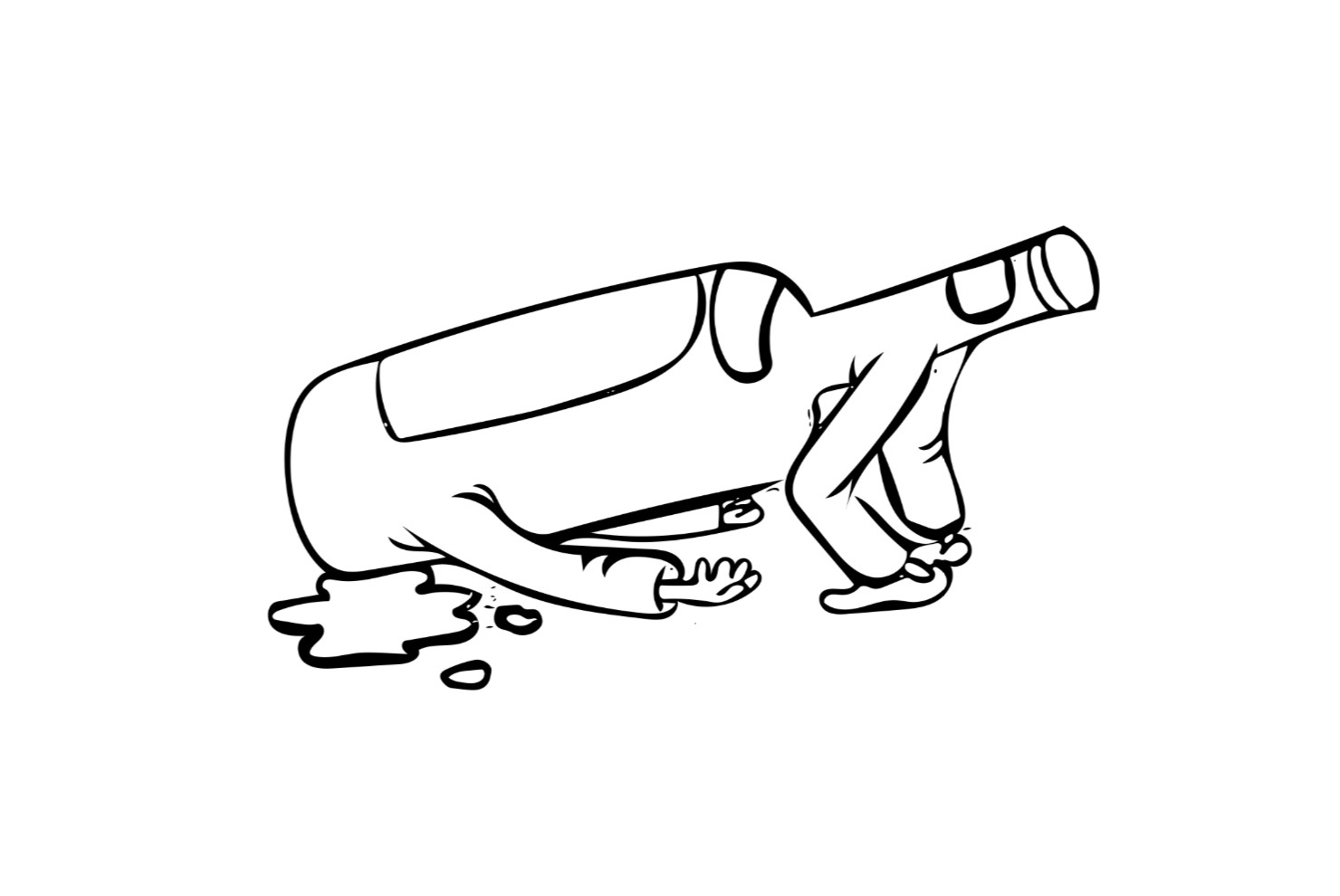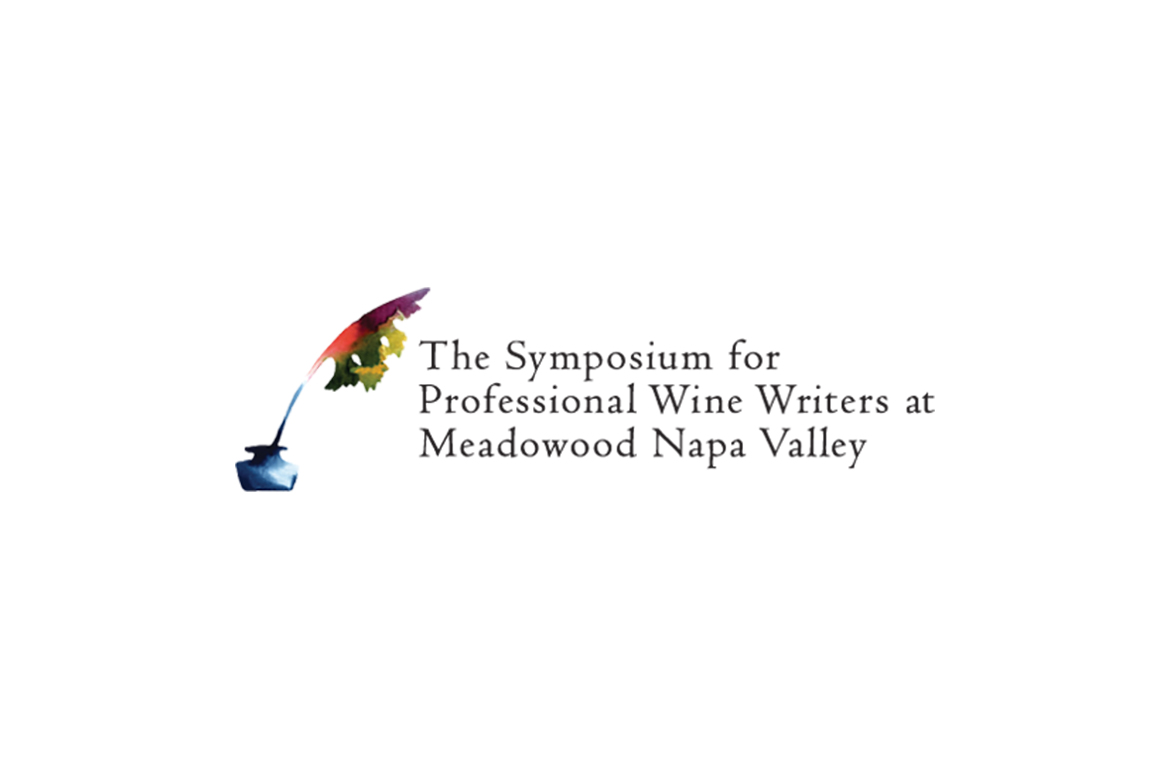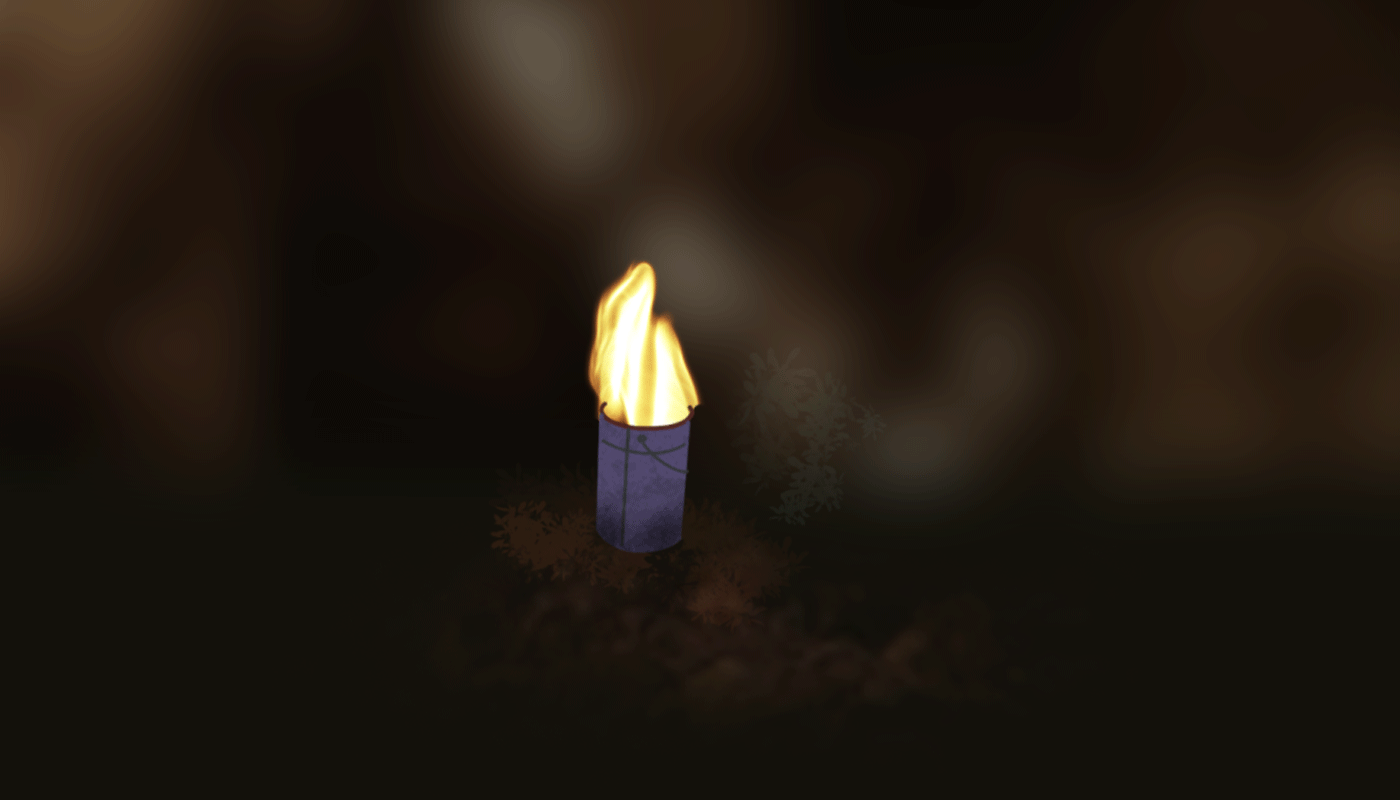The apple press comes to life with a whir and a roar. A rusty, towering collection of belts, plates, and pistons, it looks straight out of a Jules Verne novel. Dressed in rubber from head to toe, Cyril Zangs finishes scrubbing, tightening, and greasing every last knob and seal. “I love it when the juice comes out of the press,” says the Norman cider maker over the din. Soon, apples are being ground into a pulp that Zangs packs into a square frame lined with mesh. When it’s full, he swaddles the loaf and places a square wooden rack on top; the oldest are stained ebony with tannins. After three or four rounds, an amber-pink liquid begins to seep from the lowest layers. “It’s the birth, the result of all the work you’ve done up to then,” he says.
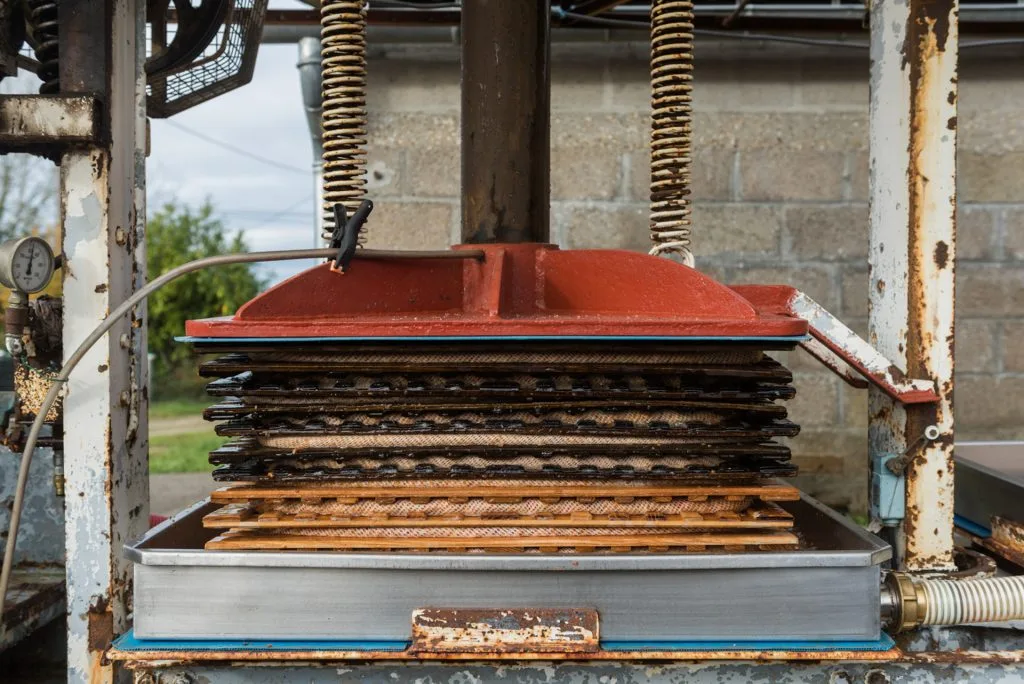
Represented in 22 countries, Cyril Zangs has made a name for himself with his dry, naturally fermented ciders. It is no coincidence they are most often found alongside bottles of natural wine. “The first people to really like my ciders were winemakers. Why? Because they know how to recognize when something is well done. They recognize the truth in the juice,” he says. Zangs is a fan of natural wine himself, and his discovery of that world has influenced his own approach to cider. “[Wine makers] can’t really give you ideas [about how to make cider], but rather a way of thinking. In wine, the first thing is to respect the grapes and that’s what I didn’t find here,” he explains, referring to the cider in Normandy.
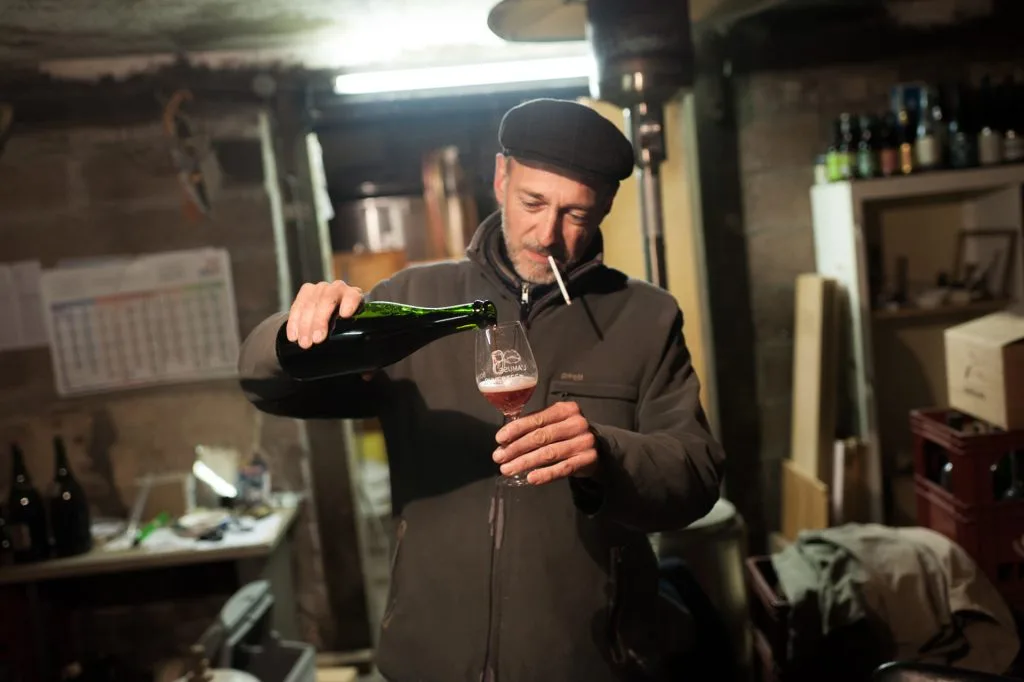
Zangs aims to make ciders that whittle down to the essence of the fruit. He does this using a deceptively simple process—hand-harvesting, no additives, natural fermentation, dégorgement. “If I respect the apples, they’ll return the favor,” he says.
I arrived in Normandy on a Monday afternoon steeped in chilly November sun. Zangs was headed to harvest apples with a Swedish couple who had traveled all the way to the Pays d’Auge region to learn from him. I followed them over a barbed-wire fence into an L-shaped orchard-prairie lined with a selection of Zangs’ trees. A herd of cows looked on longingly from the adjacent pasture. Like an aisle between library shelves, a wide grassy path stretched between the trees, each the bearer of a unique flavor. “Doux Normandie,” he said, handing me one of his favorites. Zangs’ selection of apples has grown from three or four varieties to 70 in the 20 years he has been making and experimenting with cider.
Zangs harvests by hand, sometimes with the help of a family friend. He could go faster if he used a tractor, but the nicks and bruises that come with automation would make it impossible to store the apples long enough for them to fully mature. “Most people are correcting things that are a result of choices earlier in the process,” he says. “I let the juice do its thing. I just accompany it.” Crouched in grass so long it casts shadows, Zangs rhythmically plucks apples where they have fallen, tossing the rotten ones aside. He moves with comfortable ease, the way you or I would make a cup of coffee.
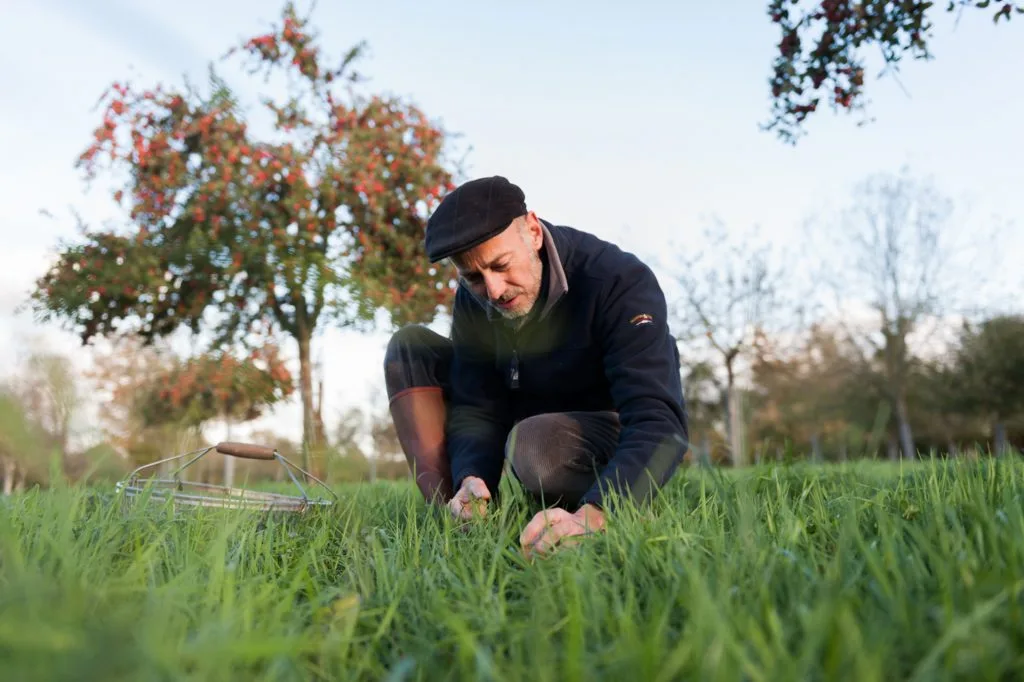
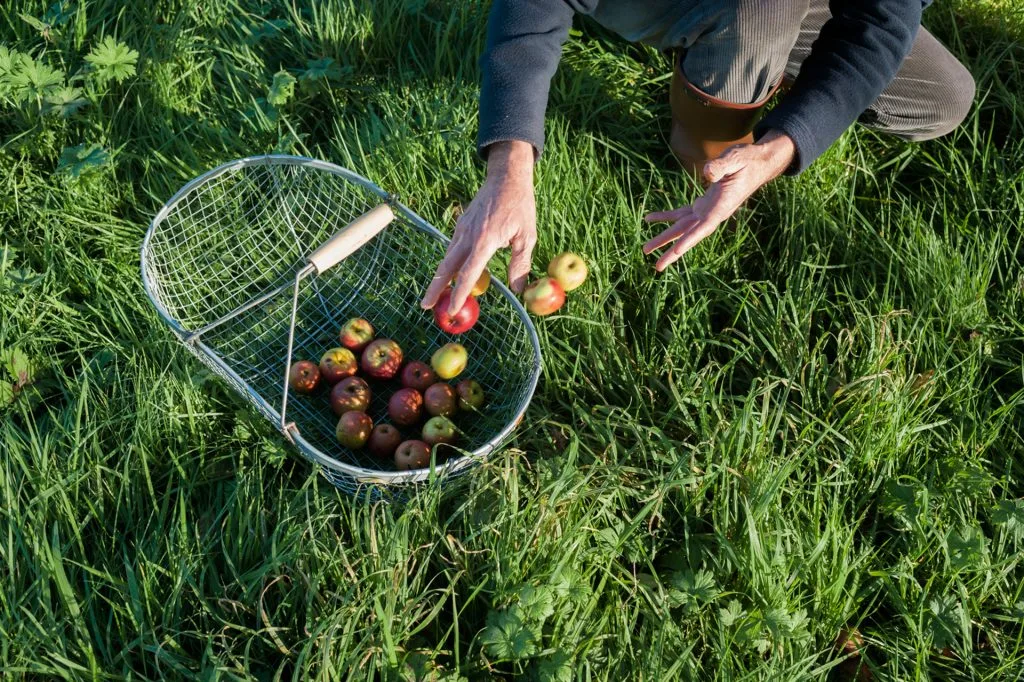
Zangs never seems to be in a hurry, but neither is he slow. He goes at his own pace, which is how he approaches cider—and also influenced his decision to start making it. “What I like is working with the seasons. There’s less of a routine,” he says. “But I realize that I don’t necessarily see the season, because I have to anticipate what’s coming next. And since I’m not very good at doing that, I’m always late,” he laughs.
The demand for Zangs’ cider is enough that he could easily increase production, but he won’t. “I do what I can…stop. I would have to sacrifice what makes my way of life,” he says.
I expected Zangs to have a heartwarming story of family cider tradition, something to explain the pride and precision with which he approaches his work. But if anything, Zangs’ cider is the rebuttal to a generation of neglect. “At first it was just a challenge to simply make good cider. Maybe I have something to prove to my grandparents and great-grandparents. I see them as opportunists. After phylloxera [the 19th-century Great French Wine Blight that decimated the wine industry], apples were moneymakers. When I was little, it was all about calvados. Then they just stopped. Where’s the passion? If there had been, they would have continued and passed it on,” he says.
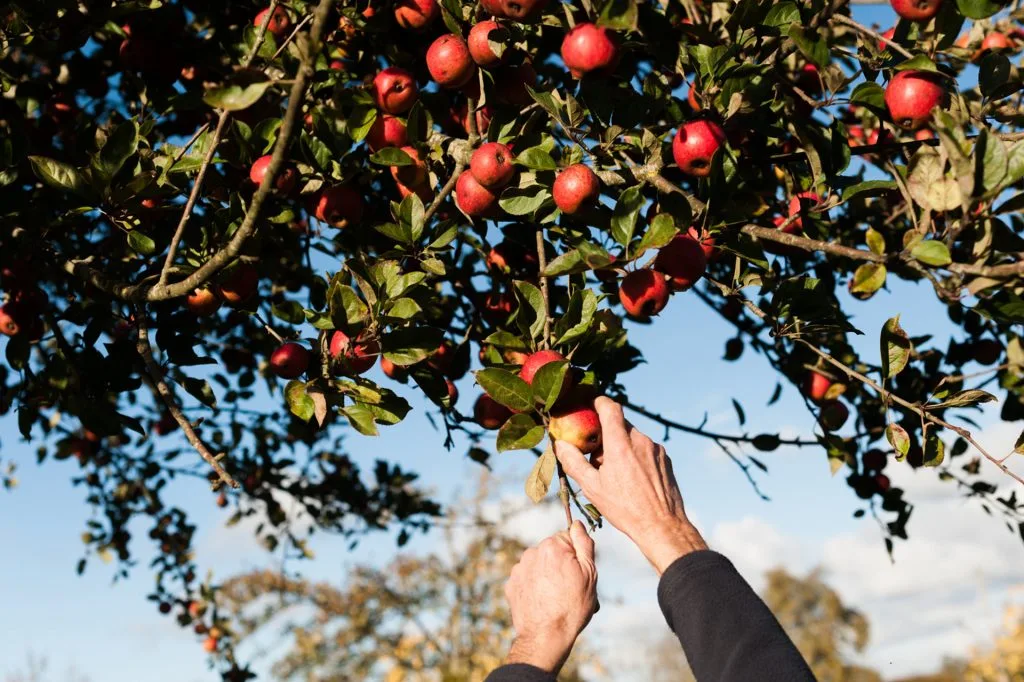
Like many families in Normandy and Brittany, the Zangs once had acres of apples that provided alcohol for the French army, or apple-based spirits when wine was scarce. But when other sources appeared in the early 20th century, those orchards became worthless. “There were 120 hectares planted in the family and all the trees were ripped up before I was born in the 1960s. The money you got selling [apples] wasn’t enough to pay the guy who picked them,” he explains.
Zangs’ first encounter with an inspiring cider occurred when he was 25, over dinner with his mother. It would be more than 20 years later before he officially started selling his cuvées. After 10 years in Paris as a book salesman, Zangs decided to repatriate to Normandy with his family for good. He took advantage of a downsizing in his company to leave and become a regional sales representative for a cider supply company. He had been dabbling in cider-making as a hobby since 1995 and thought the new job might put him in touch with other passionate cider-makers. “No one was working like me. There was no respect, it was just production,” he says.
What I learn from watching Zangs over the next day and a half is that quality equals the sum total of many small actions, each of which influences the final product. For example, Zangs’ ciders are not filtered. He relies on racking for clarification, as well as dégorgement, the same technique Champagne makers use: bottles are angled in pupitres and rotated over a period of time, then opened to release any accumulated sediment, before being topped up and resealed. Working with wild yeasts renders him beholden to nature. “It has taught me to have confidence in myself,” he says. “I had doubts and then things turned out okay. You’re confident because you know you’ve done what you needed to do earlier on. Your apples are clean, you work clean, you put everything in place to succeed.”
There is something of the philosopher in Zangs, entwined with a wry sense of humor and an epicurean disposition. “There’s a saying that goes, ‘The world belongs to early risers.’ No, the world belongs to those who make it better,” he says with a grin.
“If I had tasted good cider when I was younger, maybe I would have wanted to make cider. Maybe people who drink good cider will say, ‘Now here’s something.’ Maybe I’ve helped that along a bit.”
Photos for Sprudge Wine courtesy of Jean-Marie Heidinger.




